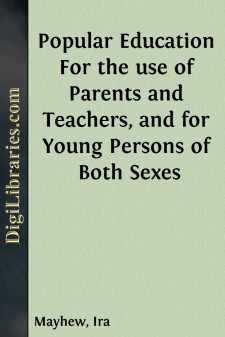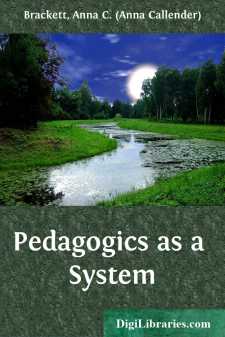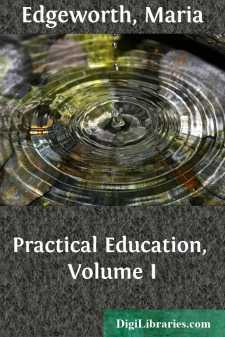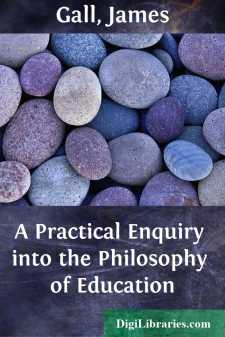Education
- General
- Preschool & Kindergarten 1
- Study Skills 3
- Teaching Methods & Materials 10
General Books
Sort by:
by:
Ira Mayhew
Who is sufficient for these things? is a question which any one may well ask when sitting down to the preparation of a treatise on popular education. The author of this work would have shrunk from the undertaking, but from deference to the judgment of the honorable body that unanimously invited its preparation. He has also been encouraged not a little by many kind friends, one of whom, distinguished...
more...
INTRODUCTION. § 1. The science of Pedagogics cannot be derived from a simple principle with such exactness as Logic and Ethics. It is rather a mixed science which has its presuppositions in many others. In this respect it resembles Medicine, with which it has this also in common, that it must make a distinction between a sound and an unhealthy system of education, and must devise means to prevent or...
more...
by:
Maria Edgeworth
PREFACE. We shall not imitate the invidious example of some authors, who think it necessary to destroy the edifices of others, in order to clear the way for their own. We have no peculiar system to support, and, consequently, we have no temptation to attack the theories of others; and we have chosen the title of Practical Education, to point out that we rely entirely upon practice and experience. To...
more...
I To what a great extent men are ruled by pure hazard, and how little reason itself enters into the question, is sufficiently shown by observing how few people have any real capacity for their professions and callings, and how many square pegs there are in round holes: happy and well chosen instances are quite exceptional, like happy marriages, and even these latter are not brought about by reason. A...
more...
by:
Maria Edgeworth
ON GRAMMAR, AND CLASSICAL LITERATURE. As long as gentlemen feel a deficiency in their own education, when they have not a competent knowledge of the learned languages, so long must a parent be anxious, that his son should not be exposed to the mortification of appearing inferiour to others of his own rank. It is in vain to urge, that language is only the key to science; that the names of things are not...
more...
INTRODUCTION The four essays on education which Herbert Spencer published in a single volume in 1861 were all written and separately published between 1854 and 1859. Their tone was aggressive and their proposals revolutionary; although all the doctrines—with one important exception—had already been vigorously preached by earlier writers on education, as Spencer himself was at pains to point out....
more...
by:
James Gall
CHAP. I. Education is at present obviously in a transition state. The public mind has of late become alive to the importance of the subject; and all persons are beginning to feel awake to the truth, that something is yet wanting to insure efficiency and permanence to the labours of the teacher. The public will not be satisfied till some decided change has taken place; and many are endeavouring to grope...
more...
IDEALS. A noble aim,Faithfully kept, is as a noble deed.Wordsworth. To few men does life bring a brighter day than that which places the crown upon their scholastic labors, and bids them go forth from the halls of the Alma Mater to the great world's battlefield. There is a freshness in these early triumphs which, like the bloom and fragrance of the flower, is quickly lost, never to be found again...
more...
FLOURISHING MEDIOCRITY Humanity is rapidly becoming less the outcome of a natural process of development, and more and more the product of an organized educational plan. The average educated man possesses no real individuality. He is simply a manufactured article bearing the stamp of the maker. Year by year this fact is becoming more emphasized. During the past century almost every civilized country...
more...
by:
Virginia McGaw
CORD CONSTRUCTION Introductory Remarks To a child one of the most attractive of possessions is a piece of cord. He has so many uses for it that it becomes part of the prized contents of his pocket. Since this commodity affords so much pleasure to the untrained child, how greatly may the pleasure be enhanced if he is taught how to make the number of beautiful things that may be wrought from cord or...
more...











